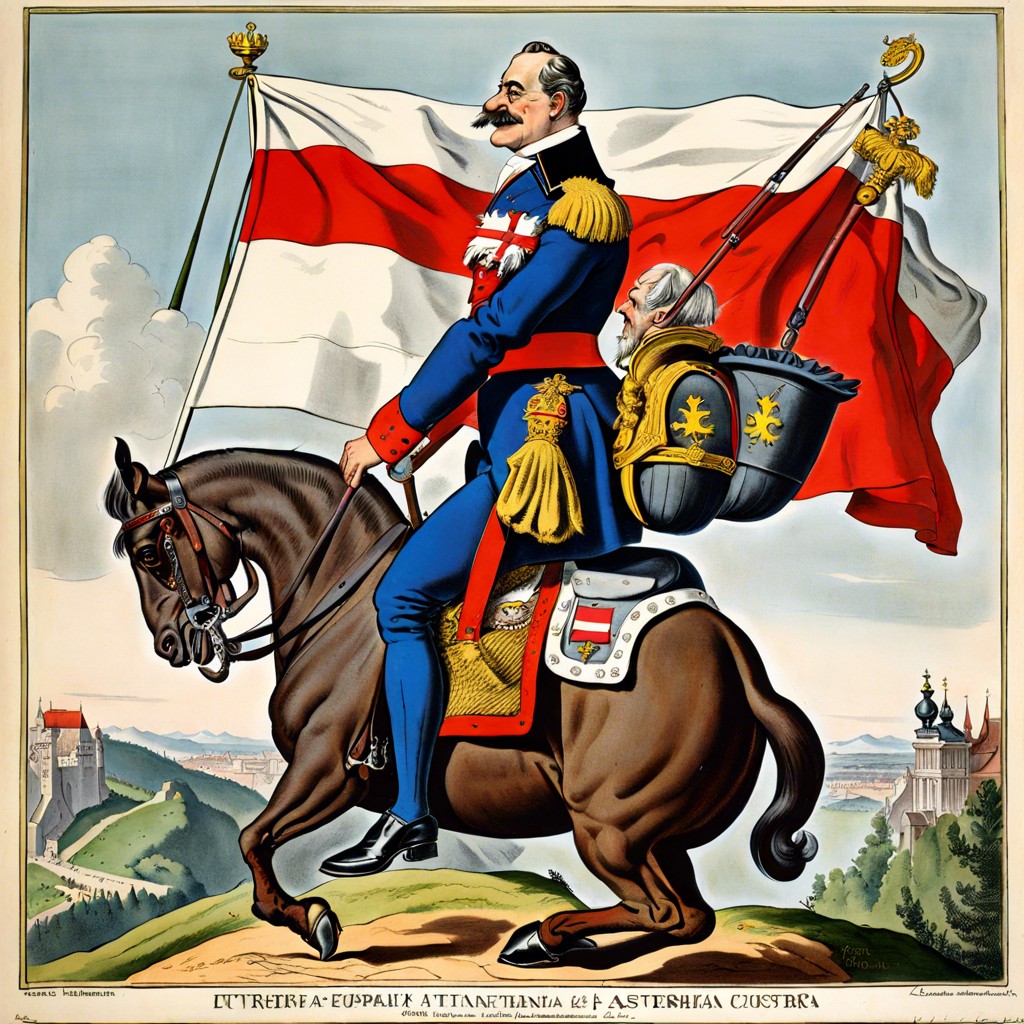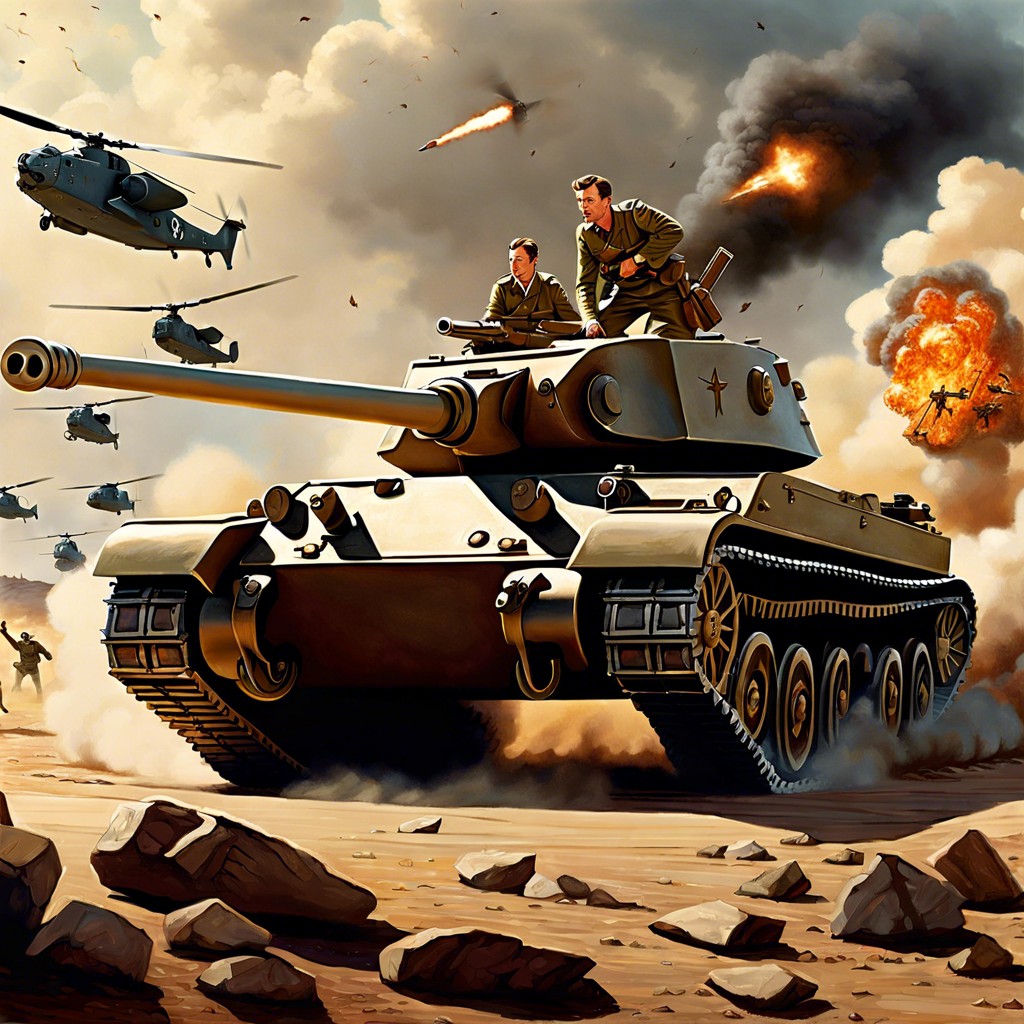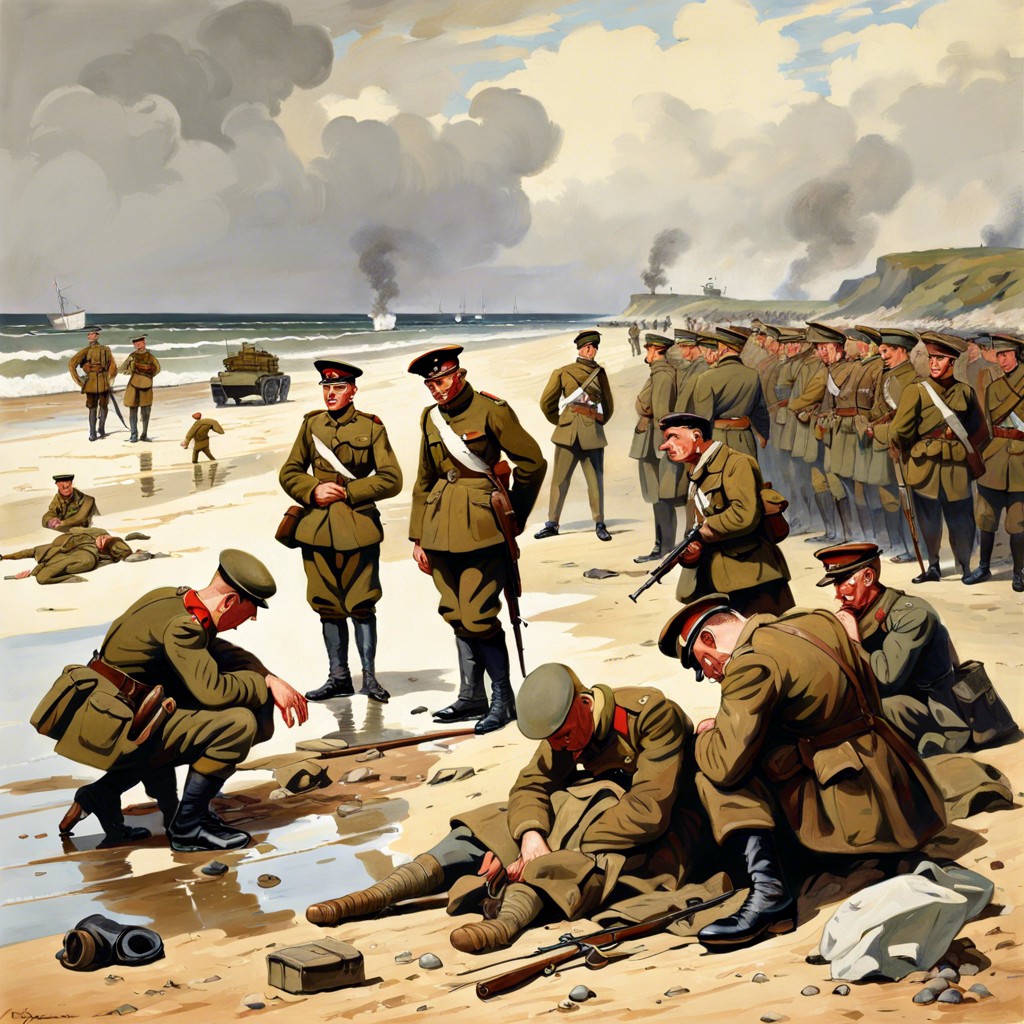Imagine a Europe where Austria’s victory in the Austro-Prussian War reshaped the balance of power, leading to a very different set of national alliances and rivalries.
Imagine a world where Austria triumphs over Prussia in their 1866 clash. European power structures rearrange like chairs at a chaotic dinner party. German unification? Say goodbye to the Kaiser as Austria steals the spotlight. Austria-Hungary’s internal drama could rival a Shakespearean play, and France and Prussia might bond over shared disappointments. Let’s delve into how military strategies morph in this alternate universe. Welcome to a history enthusiast’s playground!
Key takeaways:
- Austria would dominate Central Europe, altering major power structures.
- Austrian victory would prevent Prussian dominance, changing German unification.
- Austria-Hungary’s policies would shift internally post-win, impacting governance.
- France & Austria could form an alliance, changing Franco-Prussian relations.
- Military strategies would evolve with Austria’s victory, impacting tactics and technology.
Realignment of European Power Structures

Imagine Austria basking in the glory of victory. The mighty Habsburgs, instead of the Prussians, would hold the scepter over Central Europe.
First, the political landscape would shift dramatically. Prussia’s ambitions? Crushed under an imperial Austrian boot. No willy-nilly Otto von Bismarck forging a powerful, unified Germany. Instead, Austria would likely absorb or heavily influence the German states, creating a mega-empire.
France, always with an eye on its neighbours, would recalibrate its alliances. Napoleon III might try to cozy up to Prussia, creating a very odd couple indeed. This realignment means Britain too would shift gears, possibly backing weaker Prussia to keep Austria’s power in check.
Italy’s unification dreams could be dashed. Austria, feeling grand and generous, would hold tighter to its northern Italian territories, making those pasta-and-wine-loving regions twist and turn on Vienna’s strings.
Russia, that lumbering bear in the east, would see a stronger Austria as both an opportunity and a threat. Cue an intricate dance of diplomacy and border skirmishes, all under Europe’s newly painted strategic map.
In essence, the neighborhood politics just got much spicier.
Impact On German Unification
First off, forget about a unified Germany under Prussian dominance. Austria’s victory would make Vienna the power broker of German states. Bavaria, Saxony, and others would rally to Austria, altering the trajectory of German nationalism. A unified Germany under Austrian leadership would likely be more decentralized, a collection of states rather than a singular empire.
Prussia’s influence would drop like a poorly-played tuba in a symphony, reducing Berlin to a provincial player. The famed Iron Chancellor, Bismarck, would be relegated to pages of “what-could-have-been.”
The liberal momentum driving German unification might hit several speed bumps. Austria’s traditional, conservative grip on power would likely put the brakes on progressive reforms. So, say bye-bye to rapid industrialization and modernization, at least for a while.
In short, Austrian victory means a different kind of Germany, one that dances to Vienna’s tune with a little less Prussian discipline and a lot more Austrian waltz.
Effects On Austria-Hungary’s Internal Policies
With a victory in the Austro-Prussian War, Austria-Hungary would likely have undergone a buffet of internal policy changes. Imagine policy-making as a high-stakes game of Twister, now with more colorful spots and definitely more stretching. First up, centralization. Winning the war might have encouraged Austrian leadership to streamline government structures. Less bureaucracy, more efficiency—or at least, that’s the hope.
Meanwhile, the Hungarian half of the empire, always a bit rebellious, would either demand more autonomy or end up as a thorn in Vienna’s side. Equal partners or squabbling siblings? Who can say?
Economic policies would be another hot potato. Austria-Hungary might have invested in infrastructure to bolster trade and industry—think railroads, factories, and perhaps a burgeoning stock market that speaks German and Hungarian.
Cultural policies would also experience some dance moves of their own. A victorious Austria-Hungary might emphasize its own cultural identity, possibly leading to a revival of Austrian arts and literature, at the minor expense of its many ethnic minorities’ voices. Do we sense a bit of cultural favoritism? Perhaps just a smidge.
In sum, if Austria had pulled off a win, its policy landscape would likely be as dynamic and varied as a Viennese waltz—unexpected turns and all.
Shifts in Franco-Prussian Relations
Imagine Napoleon III in a tizzy, twirling his mustache in frustration. That’s precisely what would have happened with Austria at the helm. The balance of European power would be entirely different. Austria’s victory would have kept Prussia humbled, pushing French ambitions into overdrive.
Point one to ponder: a weakened Prussia means no unified German Empire at France’s doorstep. Napoleon III might have breathed a sigh of relief, focusing more on his own empire-building escapades rather than militaristic tensions.
And how about French diplomacy? Without the Prussian threat, France would probably cozy up to Austria, whispering sweet nothings in Vienna’s ear. Picture an Austria-France bromance, reshaping alliances and tossing out the old playbooks of enmity.
Let’s not forget military innovation. France might invest more heavily in developing cutting-edge technology, trying to keep ahead of Austria, which would likely have ramped up its army prowess post-victory.
There you have it—an alternative reality where mustaches twirl for different reasons and alliances bend in intriguing ways.
Changes in Military Strategies and Technologies
Well, picture this: if Austria had emerged victorious, we’d be looking at a very different military landscape. First off, Austria, basking in its newfound military glory, would have naturally become the “cool kids” of the European battlefield. Their tactics, which involved intricate coordination and discipline, would probably have become the blueprint for future military strategies.
And let’s not forget weaponry. With victory comes the spoils, and in this case, technological innovation. Austria would have likely invested more in enhancing their weaponry, crafting advanced rifles and artillery that other nations would clamor to mimic. Innovation would have been the name of the game, driven by a need to maintain their new-found dominance.
Imagine limited railroads being a key player too. Strategic rail networks, enabling fast troop movements, could have been seen as a game-changer. Nations would scramble to lay down tracks, signifying a shift in logistics that could rival the classic horse-and-carriage methods of yesteryears.
Lastly, a successful Austria would likely have revised military training methods. Goodbye, casual drills; hello, rigorous boot camp! They’d crank up their training programs, making sure their soldiers were the epitome of precision and efficiency. It’s not just about winning battles; it’s about setting trends.
So, more precise tactics, upgraded weaponry, railway logistics, and toughened training regimes—those would have been Austria’s gifts to military fashion.




